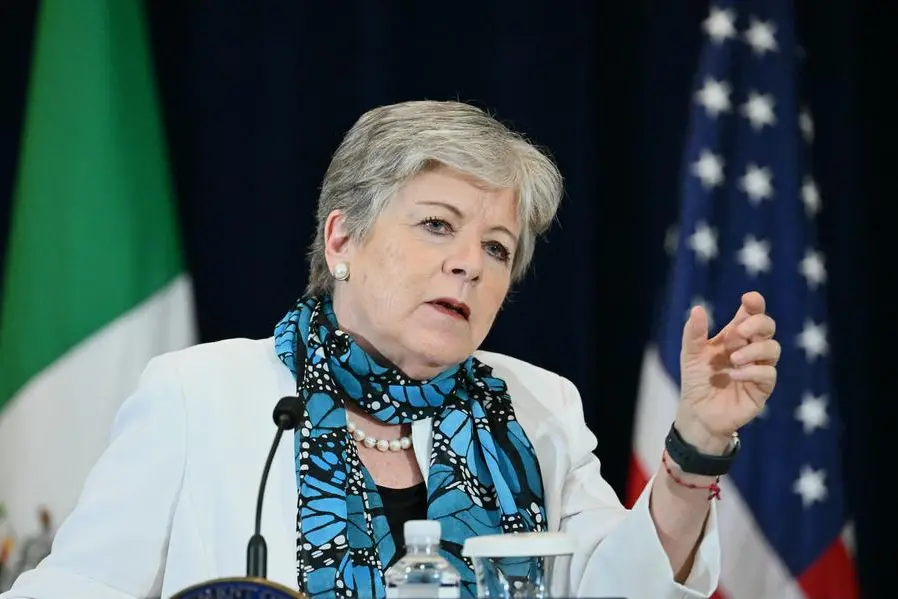PHOTO
Latin American leaders holding a summit called Sunday on the United States to change the way it deals with the flood of illegal migration heading to its border.
For Washington, this is a red hot issue with political fallout on the scale of the wars in the Middle East and in Ukraine.
Without explicitly naming the US, the presidents of Mexico, Cuba, Venezuela and other leaders of the region called on destination countries to end "inconsistent and selective policies" such as granting entry to certain nationalities but not others.
They also are called on such destination countries to broaden above-board, legal and safe paths by which migrants can travel to such wealthier countries -- a nod to enhancing mobility for workers seeking a better life as they flee countries with gang violence, corruption and poverty.
The statement after the meeting held in the southern city of Palenque was read out by Mexican Foreign Minister Alicia Barcena.
In what has become standard at such Latin American summits, the leaders called for an end to "unilateral, coercive measures" imposed on countries -- a reference to communist-run Cuba and the US trade embargo in effect against it for decades.
The International Organization for Migration has said the US-Mexico border lies on one of the most dangerous migratory treks anywhere in the world.
It said that last year 686 people died or went missing making that journey, for which travelers pay a small fortune to traffickers.
This year alone, 1.7 million migrants arrived at the Mexican-US border. And the migration is becoming a huge political hot potato in both North American nations, which each have presidential elections next year.
September alone saw 60,000 migrants arrive in Mexico from Venezuela, along with 35,000 Guatemalans and 27,000 Hondurans, according to the Mexican government.
For the summit President Andres Manuel Lopez Obrador welcomed his counterparts Nicolas Maduro of Venezuela, Miguel Diaz-Canel of Cuba, and Gustavo Petro of Colombia, among others including several foreign ministers.
They met in Mexico's southernmost state of Chiapas, which has become the entry point for thousands of people coming from South America, Central America, the Caribbean and elsewhere, to try to make it across sprawling Mexico -- and into the United States.
One migrant at a shelter nearby slammed what he called this "Summit of the Oppressors," and mentioned the presidents of Venezuela, and Cuba -- the only Communist-ruled one-party nation in the Americas.
"I suppose they are going to decide to deport all of us," said Jorge Rodriguez, a 33-year old Venezuelan on his way northward.
Amid US economic sanctions and a political and economic crisis, some 7.1 million Venezuelans have fled the country in recent years, creating challenges for its South American neighbors.
Some 130 Venezuelan migrants arrived back home Wednesday on a chartered plane from the United States on the first such deportation flight following an agreement between the two countries, despite the fact that Washington does not recognize Maduro's 2018 reelection.
The United States sends migrants back home, mainly to Central and South America, on about 70 flights every week, authorities said recently.
At the same time, the Biden administration also recently offered protection from deportation to 472,000 Venezuelans to allow them to obtain residence and work permits within 18 months -- although this would apply only to those who arrived before July 31 of this year.





















